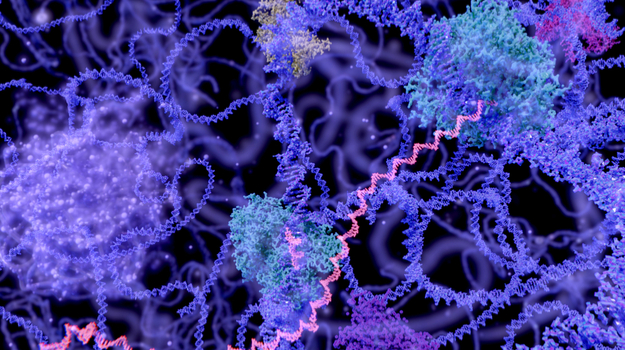Research Discovers That A Type Of Circular RNA Known As CDR1as Limits Skin Cancer Spread
Source: Thailand Medical News Jan 14, 2020 5 years, 11 months, 1 week, 3 days, 9 hours, 24 minutes ago
A new study has found that a mysterious piece of genetic material restrains the spread of
skin cancer cells, but is frequently lost as they mature. Published online in
Cancer Cell, the new work revolves around
circular RNA, a recently described type of
ribonucleic acid (
RNA).

Often, DNA blueprints are converted into
RNA and then into proteins with cellular functions. While most
RNA are linear molecules, some form
circles when their ends loop around and attach. Instead of encoding proteins,
circular RNA (
circRNA) seem to be part of complex regulatory systems, but their functions are still unclear, say the study authors.
The research led by researchers at New York University Grossman School of Medicine, which focuses only cell cultures and mice, is the first to show that a
circRNA called
CDR1as blocks the aggressive spread of
melanoma skin cancers, and that its loss promotes it. A study analysis of human
melanoma tissues also linked higher
CDR1as levels with increased survival.
Often in patients that die from
melanoma, the most lethal form of
skin cancer, the aggressive spread, or metastasis, of
cancer cells is the primary cause of death.
Cancer cells arise from normal cells because of genetic errors, but changes in DNA do not fully explain how the cells spread.
Senior study author Eva Hernando, Ph.D., Associate Professor in the Department of Pathology at NYU Langone Health told
Thailand Medical News,"Our study provides new insights into the aggressive behavior of
melanoma, and is the first to expose a
circRNA as a suppressor of metastasis. We found
CDR1as restrains a known pro-
cancer protein called IGF2BP3, revealing a new function of
CDR1as that may have therapeutic implications."
Past research had suggested previously unknown functions for
circRNAs, including their binding with proteins that attach to
RNA to influence cell functions. Specifically, the new study reveals that metastasis of
melanomas proceeds when the interaction between
CDR1as and the
RNA-binding protein IGF2BP3 is disrupted.
The researchers say that if
CDR1as is active, IGF2BP3 proteins bind to its
circular RNA molecules, instead of attaching to other
RNAs that code for pro-metastatic proteins. When
CDR1as was removed using molecular techniques, IGF2BP3 was free to prom
ote
cancer cell invasion, which occurs when cells penetrate
skin layers and spread to distant organs.
The research identifies the source of
CDR1as in cells as LINC00632, an example of yet another class of
RNA called long non-coding
RNA. Experiments revealed further that an "epigenetic" mechanism in melanoma cells silences the LINC00632 gene, which halts
CDR1as production.
The researchers also say that epigenetic changes adjust the operation of genes without changing their DNA code, These include the attachment of molecules called methyl groups to histones, the "spools" around which DNA chains are wrapped. Methylation status determines whether a given stretch of DNA is unwound and accessible; or instead compacted, with the genes residing there silenced, researchers say.
The research found that a particular histone methylation, H3K27me3, silences the gene for LINC00632 in
melanoma cells starting to spread, which come to lack
CDR1as. The authors say that this interaction could represent a mechanism that helps cells migrate during normal (fetal) development, but that then drives
cancer spread when it mistakenly re-occurs in tumors.
Reference: Epigenetic Silencing of CDR1as Drives IGF2BP3-Mediated Melanoma Invasion and Metastasis, Douglas Hanniford, Alejandro Ulloa-Morales, Alcida Karz, Iman Osman, Iannis Aifantis, Eva Hernando, Cancer Cell,
DOI:https://doi.org/10.1016/j.ccell.2019.12.007 